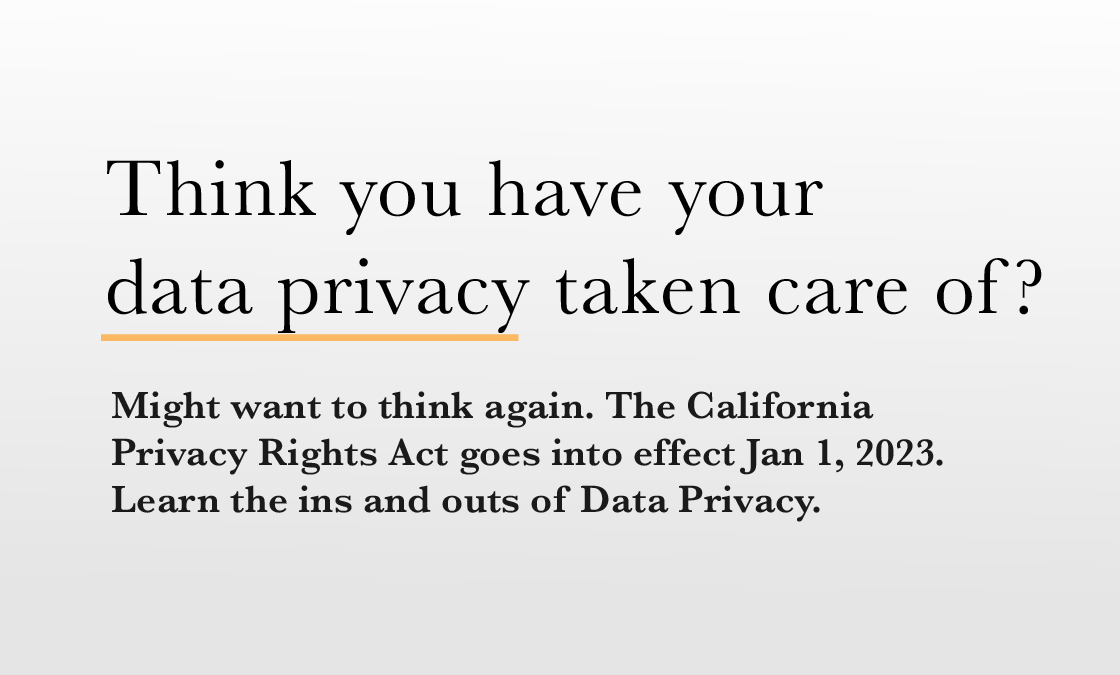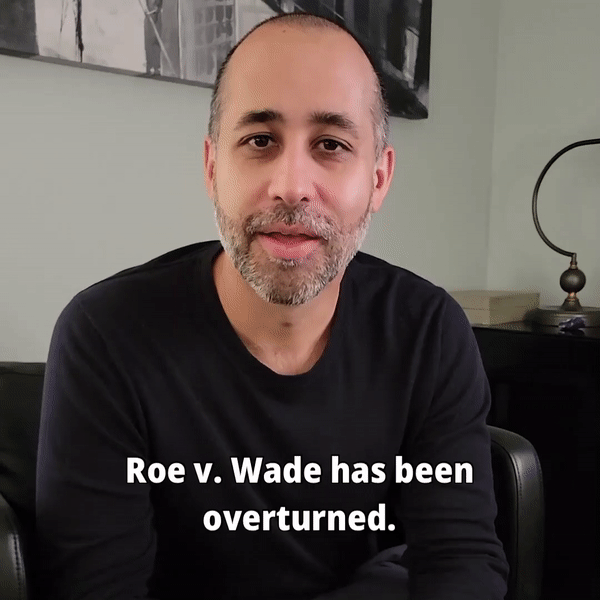Much has happened since last November when a home contractor filed a lawsuit for $750,000 against a former customer for defamation. If you read the headlines across the news agencies, you saw, “Contractor Files Lawsuit against Customer for Bad Review“. This is very misleading because it implies that the only reason the contractor filed suit was because the review was negative–suggesting that it had nothing to do with whether the comments were true or not. The judge granted a preliminary injunction requiring the homeowner to remove some of the most egregiously inaccurate (as alleged) statements from the Yelp review. However, the lawsuit, itself, caused some bad press for the contractor, compounding the harm of the original posting. What do you if you find an outright lie on Yelp? Certainly not what the contractor did, which was to post his own negative Yelp remarks, alleging that the homeowner had “stolen” his goods and services since she never paid him for the job. That move cost him his victory. In June, a jury found that although the homeowner had defamed the contractor, his later remarks also defamed her. Forget the $750,000. There was no award. [youtube]http://www.youtube.com/watch?v=NwIDgABh5a0[/youtube]
What It Takes to Sue for a Lie on Yelp
Defamation is the primary cause of action that is used against someone who has lied about you or your business online. There are a number of steps a business will have to go through to win a defamation lawsuit. The first is to show that the customer published a non privileged false statement of fact (rather than opinion), The second is to show that the false factual statement exposed the business to hatred, contempt, ridicule or has a tendency to injure the occupation or business reputation.
False Statement
Truth is always a defense to defamation. This is why no business should ever sue for merely getting a “bad review”. That will not only reflect poorly on the business’s reputation, but it will not get the business far in court for a defamation claim.

Statement of Fact
This is where an online reviewer can skirt some liability by making statements of opinions instead of facts. This has a fine line. A statement of fact implies a provably false factual assertion while a statement of opinion does not. The main purpose of this distinction is to walk to the line of where freedom of speech begins and ends; however, spreading false opinions that imply the allegation of undisclosed defamatory facts as their basis is beyond free speech. Also of great importance is the context of the speech, what the reader is likely to conclude from the statements. For example, saying that this plumber is a “thief” because he charges an arm and leg is probably more of an opinion because there is no fact to prove false since whether a plumber is expensive is subjective and an opinion; compare that to a review that says this plumber is a “thief” and so I called the cops on him–this implies he is an actual thief, a provable (or disprovable) fact.
Damages
If argued properly, an injured business could not only get an order requiring the slanderous review to be removed but also obtain damages for the harm to reputation and even specific lost business opportunities if proved accordingly.
The Actual Review on Yelp Being Sued For
Here is the review in full from AngelsList.com:
Overall: F Price: F Quality: F Responsiveness: F Punctuality: F Professionalism: F Description of Work: Dietz Development was to perform: painting, refinish floors, electrical, plumbing and handyman work. I was instead left with damage to my home and work that had to be reaccomplished for thousands more than originally estimated. Member comments: My home was damaged’ the “work” had to be re-accomplished; and Dietz tried to sue me for “monies due for his “work.” I won in summary judgement (meaning that his case had no merit). Despite his claims, Dietz was/is not licensed to perform work in the state of VA. Further, he invoiced me for work not even performed and also sued me for work not even performed. Today (six months later) he just showed up at my door and ‘”wanted to talk to me.” I said that I “didn’t want to talk to him,” closed the door , and called the police. (The police said his reason was that he had a “lien on my house”; however this “lien” was made null and void the day I won the case according to the court.) This is after filing my first ever police report when I found my jewelry missing and Dietz was the only one with a key. Bottom line do not put yourself through this nightmare of a contractor.
Not exactly a glowing review. Highlighted above are statements that may be considered “statements of fact” and if false could definitely lead to damages against the reviewer. Included in these highlighted statements are ones the judge ordered removed after hearing only a small amount of testimony in a preliminary injunction. Notice that a majority of the comments can be construed as fact because they could be proved otherwise and it’s not a matter of opinion. Compare that to the letter grades given of straight F’s which are complete opinion.
Do Not Pay People to Write Positive Online Reviews
First and foremost, posting false positive reviews and paying for it will be against the terms of service of the website. For example, back in October of this year, Yelp announced that it would start showing warnings to users when they have found businesses that have paid for reviews. A “Consumer Alert” will appear on those listings. Yelp has said they have caught people red-handed trying to buy reviews for their business and they wanted to do something about it because buying reviews not only hurts consumers, but also honest businesses who play by the rules. Second, this is like paying for false testimonials. There are a number of statutes and regulations that vary state to state regarding advertising, but FTC guidance controls on this issue, prohibiting “unfair and deceptive acts or practices in commerce.” There may be a fine line between giving incentives for any reviews versus paying for them as the FTC has expanded its regulation to include online reviews requiring the authors to disclose they are being paid to do so (which of course would defeat its purpose).
Dealing with A False Customer Review
Another recent Virginia case deals with the perplexing problem of anonymous Yelp reviews that may be phony. The legal fighting has not yet gotten to the issue of defamation. It remains about whether Yelp must disclose the identities of the individuals writing negative reviews. After it chose to stop advertising with Yelp, a carpet cleaning business suddenly began to rack up anonymous negative reviews. Many of the seven reviews in question used similar language and repeated similar themes about deceptive advertising and doubled prices. One was from a state in which the carpet cleaner conducts no business. The business claimed that it could not match these negative reviews with actual customers, and that the reviews were therefore in violation of Yelp’s Terms of Service which requires that users actually patronize a business before writing a review. In its defamation suit, the carpet cleaner further claimed that it cannot determine if the claims about price and advertising are false because it cannot tell who the customers are. There is, of course, some reason to believe that the claims about actual patronage are not true. Anonymous statements of opinion are protected under the First Amendment, and Yelp has fought fiercely against the subpoenas that would require it to disclose the identities of the negative reviewers, even to the extent of paying fines for being found in contempt of court. When the shoe was on the other foot, Yelp was successful in a lawsuit based on breach of contract, unfair competition and false advertising against authors of phony positive reviews. This could get interesting. The Virginia Supreme Court will hear the case in the near future. For some businesses, filing a lawsuit right away may sound good, but as we have seen it can backfire pretty quickly once people find out you are suing your former customers. As in all litigation matters, dealing with things before it is a problem is of utmost importance and when does become an issue, dealing it before it escalates is imperative. When you do get a bad review, see what you can do for the customer directly to address his or her concerns–in the long run it will make a significance difference. For some businesses, a few negative reviews here and there is the cost of doing business especially when you already have a bunch more positive reviews. For example, a restaurant bar and grill recorded their negative reviews and started playing them in their bathroom. One pizzeria owner reportedly reprints nasty Yelp reviews on employee t-shirts. As a general rule, litigation should be a last resort. Most do not realize the expense and toll that it can play on the wallet and mind.
Why Not Just Sue Yelp?
Yelp itself is protected by Section 230 of the Communications Decency Act and cannot be held liable for these kind of acts. Section 230 grants interactive online services of all types, including news websites, blogs, forums, and listservs, broad immunity from certain types of legal liability stemming from content created by others. This immunity covers defamation and privacy claims, as well as negligence and other tort claims associated with publication. Yelp or other review sites will not lose this immunity even if they edit the content, whether for accuracy or civility, so long as the edits do not materially alter the meaning of the original content.
Former Employee Spilling the Beans Online
Besides just negative reviews from customers, former employees of businesses may get into the mix. Notwithstanding a defamation claim as discussed, non-disparagement agreements with employees are generally enforceable, but the scope and in what circumstances may be severely restricted as to how the clause is drafted but most importantly by whistle-blower statutes and general rights of freedom of speech.
Anti-SLAPP Motion: A Scary Threat to Suing Your Customers for Defamation
SLAPP stands for strategic lawsuits against public participation. It is a tool in California and some other states that can be very useful for defendants in protecting freedom of speech; without an anti-SLAPP statute, a malicious business could inflict substantial expense and hardship upon someone in retaliation for their speech, even if their claim is without merit. If done properly, such a motion shifts the burden on the plaintiff to prove that they are likely to win their case based upon the evidence provided. Losing such a motion would not only stop the lawsuit on its track but also expose the plaintiff to attorney’s fees–a scary threat to any defamation lawsuit.




![Explaining the Hans Niemann Chess Lawsuit v. Magnus Carlsen [e320]](https://www.pashalaw.com/wp-content/uploads/2022/10/LAWYER-EXPLAINS-7-1024x576.png)




![Ultimate Legal Breakdown of Internet Law & the Subscription Business Model [e300]](https://www.pashalaw.com/wp-content/uploads/2019/05/Ultimate-Legal-Breakdown-of-Internet-Law-the-Subscription-Business-Model-1024x669.jpg)
![Facebook, Zuckerberg, and the Data Privacy Dilemma [e296] User data, data breach photo by Pete Souza)](https://www.pashalaw.com/wp-content/uploads/2018/04/data-1024x543.jpg)
![Ultimate Legal Breakdown: Negative Online Reviews [e288]](https://www.pashalaw.com/wp-content/uploads/2017/06/Ultimate-Legal-Breakdown-Online-Reviews-1-1024x543.jpg)

![Airbnb’s Discrimination Problem and How Businesses Can Relate [e279]](https://www.pashalaw.com/wp-content/uploads/2016/09/airbnb-1024x543.jpg)




![Law in the Digital Age: Exploring the Legal Intricacies of Artificial Intelligence [e323]](https://www.pashalaw.com/wp-content/uploads/2023/11/WhatsApp-Image-2023-11-21-at-13.24.49_4a326c9e-300x212.jpg)
![Unraveling the Workforce: Navigating the Aftermath of Mass Layoffs [e322]](https://www.pashalaw.com/wp-content/uploads/2023/07/Untitled-design-23-300x212.png)
![Return to the Office vs. Remote: What Can Employers Legally Enforce? [e321]](https://www.pashalaw.com/wp-content/uploads/2023/01/Pasha_LSSB_321_banner-300x212.jpg)
![Explaining the Hans Niemann Chess Lawsuit v. Magnus Carlsen [e320]](https://www.pashalaw.com/wp-content/uploads/2022/10/LAWYER-EXPLAINS-7-300x169.png)
![California v. Texas: Which is Better for Business? [313]](https://www.pashalaw.com/wp-content/uploads/2021/07/Pasha_LSSB_CaliforniaVSTexas-300x212.jpg)
![Buyers vs. Sellers: Negotiating Mergers & Acquisitions [e319]](https://www.pashalaw.com/wp-content/uploads/2022/06/Pasha_LSSB_BuyersVsSellers_banner-300x212.jpg)
![Employers vs. Employees: When Are Employment Restrictions Fair? [e318]](https://www.pashalaw.com/wp-content/uploads/2022/05/Pasha_LSSB_EmployeesVsEmployers_banner-1-300x212.jpg)
![Vaccine Mandates Supreme Court Rulings [E317]](https://www.pashalaw.com/wp-content/uploads/2022/02/WhatsApp-Image-2022-02-11-at-4.10.32-PM-300x212.jpeg)
![Business of Healthcare [e316]](https://www.pashalaw.com/wp-content/uploads/2021/11/Pasha_LSSB_BusinessofHealthcare_banner-300x212.jpg)
![Social Media and the Law [e315]](https://www.pashalaw.com/wp-content/uploads/2021/10/WhatsApp-Image-2021-10-06-at-1.43.08-PM-300x212.jpeg)
![Defining NDA Boundaries: When does it go too far? [e314]](https://www.pashalaw.com/wp-content/uploads/2021/09/Pasha_LSSB_NDA_WordPress-2-300x212.jpg)
![More Than a Mistake: Business Blunders to Avoid [312] Top Five Business Blunders](https://www.pashalaw.com/wp-content/uploads/2021/06/Pasha_LSSB_Blunders_WP-1-300x212.jpg)
![Is There a Right Way to Fire an Employee? We Ask the Experts [311]](https://www.pashalaw.com/wp-content/uploads/2021/02/Pasha_LSSB_FireAnEmployee_Website-300x200.jpg)
![The New Frontier: Navigating Business Law During a Pandemic [310]](https://www.pashalaw.com/wp-content/uploads/2020/12/Pasha_LSSB_Epidsode308_Covid_Web-1-300x200.jpg)
![Wrap Up | Behind the Buy [8/8] [309]](https://www.pashalaw.com/wp-content/uploads/2020/11/Pasha_BehindTheBuy_Episode8-300x200.jpg)
![Is it all over? | Behind the Buy [7/8] [308]](https://www.pashalaw.com/wp-content/uploads/2020/09/iStock-1153248856-overlay-scaled-300x200.jpg)
![Fight for Your [Trademark] Rights | Behind the Buy [6/8] [307]](https://www.pashalaw.com/wp-content/uploads/2020/07/Fight-for-your-trademark-right-300x200.jpg)
![They Let It Slip | Behind the Buy [5/8] [306]](https://www.pashalaw.com/wp-content/uploads/2020/06/Behind-the-buy-they-let-it-slip-300x200.jpg)
![Mo’ Investigation Mo’ Problems | Behind the Buy [4/8] [305]](https://www.pashalaw.com/wp-content/uploads/2020/05/interrobang-1-scaled-300x200.jpg)
![Broker or Joker | Behind the Buy [3/8] [304] Behind the buy - Broker or Joker](https://www.pashalaw.com/wp-content/uploads/2020/04/Joker-or-Broker-1-300x185.jpg)
![Intentions Are Nothing Without a Signature | Behind the Buy [2/8] [303]](https://www.pashalaw.com/wp-content/uploads/2020/04/intentions-are-nothing-without-a-signature-300x185.jpg)
![From First Steps to Final Signatures | Behind the Buy [1/8] [302]](https://www.pashalaw.com/wp-content/uploads/2020/04/first-steps-to-final-signatures-300x185.jpg)
![The Dark-side of GrubHub’s (and others’) Relationship with Restaurants [e301]](https://www.pashalaw.com/wp-content/uploads/2015/04/When-Competition-Goes-Too-Far-Ice-Cream-Truck-Edition-300x201.jpg)
![Ultimate Legal Breakdown of Internet Law & the Subscription Business Model [e300]](https://www.pashalaw.com/wp-content/uploads/2019/05/Ultimate-Legal-Breakdown-of-Internet-Law-the-Subscription-Business-Model-300x196.jpg)
![Why the Business Buying Process is Like a Wedding?: A Legal Guide [e299]](https://www.pashalaw.com/wp-content/uploads/2019/03/futura-300x169.jpg)
![Will Crowdfunding and General Solicitation Change How Companies Raise Capital? [e298]](https://www.pashalaw.com/wp-content/uploads/2018/11/Will-Crowdfunding-and-General-Solicitation-Change-How-Companies-Raise-Capital-300x159.jpg)
![Pirates, Pilots, and Passwords: Flight Sim Labs Navigates Legal Issues (w/ Marc Hoag as Guest) [e297]](https://www.pashalaw.com/wp-content/uploads/2018/07/flight-sim-labs-300x159.jpg)
![Facebook, Zuckerberg, and the Data Privacy Dilemma [e296] User data, data breach photo by Pete Souza)](https://www.pashalaw.com/wp-content/uploads/2018/04/data-300x159.jpg)
![What To Do When Your Business Is Raided By ICE [e295] I.C.E Raids business](https://www.pashalaw.com/wp-content/uploads/2018/02/ice-cover-300x159.jpg)
![General Contractors & Subcontractors in California – What you need to know [e294]](https://www.pashalaw.com/wp-content/uploads/2018/01/iStock-666960952-300x200.jpg)
![Mattress Giants v. Sleepoplis: The War On Getting You To Bed [e293]](https://www.pashalaw.com/wp-content/uploads/2017/12/sleepopolis-300x159.jpg)
![The Harassment Watershed [e292]](https://www.pashalaw.com/wp-content/uploads/2017/12/me-2-300x219.jpg)
![Investing and Immigrating to the United States: The EB-5 Green Card [e291]](https://www.pashalaw.com/wp-content/uploads/2012/12/eb-5-investment-visa-program-300x159.jpg)
![Responding to a Government Requests (Inquiries, Warrants, etc.) [e290] How to respond to government requests, inquiries, warrants and investigation](https://www.pashalaw.com/wp-content/uploads/2017/10/iStock_57303576_LARGE-300x200.jpg)
![Ultimate Legal Breakdown: Employee Dress Codes [e289]](https://www.pashalaw.com/wp-content/uploads/2017/08/Ultimate-Legal-Breakdown-Template-1-300x159.jpg)
![Ultimate Legal Breakdown: Negative Online Reviews [e288]](https://www.pashalaw.com/wp-content/uploads/2017/06/Ultimate-Legal-Breakdown-Online-Reviews-1-300x159.jpg)
![Ultimate Legal Breakdown: Social Media Marketing [e287]](https://www.pashalaw.com/wp-content/uploads/2017/06/ultimate-legal-breakdown-social-media-marketing-blur-300x159.jpg)
![Ultimate Legal Breakdown: Subscription Box Businesses [e286]](https://www.pashalaw.com/wp-content/uploads/2017/03/ultimate-legal-breakdown-subscription-box-services-pasha-law-2-300x159.jpg)
![Can Companies Protect Against Foreseeable Misuse of Apps [e285]](https://www.pashalaw.com/wp-content/uploads/2017/01/iStock-505291242-300x176.jpg)
![When Using Celebrity Deaths for Brand Promotion Crosses the Line [e284]](https://www.pashalaw.com/wp-content/uploads/2017/01/celbrity-300x159.png)
![Are Employers Liable When Employees Are Accused of Racism? [e283] Racist Employee](https://www.pashalaw.com/wp-content/uploads/2016/12/Are-employers-liable-when-an-employees-are-accused-of-racism-300x159.jpg)
![How Businesses Should Handle Unpaid Bills from Clients [e282] What to do when a client won't pay.](https://www.pashalaw.com/wp-content/uploads/2016/12/How-Businesses-Should-Handle-Unpaid-Bills-to-Clients-300x159.png)
![Can Employers Implement English Only Policies Without Discriminating? [e281]](https://www.pashalaw.com/wp-content/uploads/2016/11/Can-Employers-Impliment-English-Only-Policies-Without-Discriminating-300x159.jpg)
![Why You May No Longer See Actors’ Ages on Their IMDB Page [e280]](https://www.pashalaw.com/wp-content/uploads/2016/10/IMDB-AGE2-300x159.jpg)
![Airbnb’s Discrimination Problem and How Businesses Can Relate [e279]](https://www.pashalaw.com/wp-content/uploads/2016/09/airbnb-300x159.jpg)
![What To Do When Your Amazon Account Gets Suspended [e278]](https://www.pashalaw.com/wp-content/uploads/2016/09/What-To-Do-When-Your-Amazon-Account-Gets-Suspended-1-300x200.jpg)
![How Independent Artists Reacted to Fashion Mogul Zara’s Alleged Infringement [e277]](https://www.pashalaw.com/wp-content/uploads/2016/08/How-Independent-Artists-Reacted-to-Fashion-Mogul-Zaras-Alleged-Infringement--300x159.jpg)
![Can Brave’s Ad Replacing Software Defeat Newspapers and Copyright Law? [e276]](https://www.pashalaw.com/wp-content/uploads/2016/08/Can-Braves-Ad-Replacing-Software-Defeat-Newspapers-and-Copyright-Law-300x159.jpg)
![Why The Roger Ailes Sexual Harassment Lawsuit Is Far From Normal [e275]](https://www.pashalaw.com/wp-content/uploads/2016/07/WHY-THE-ROGER-AILES-SEXUAL-HARASSMENT-LAWSUIT-IS-FAR-FROM-NORMAL-300x159.jpeg)
![How Starbucks Turned Coveted Employer to Employee Complaints [e274]](https://www.pashalaw.com/wp-content/uploads/2016/07/iStock_54169990_LARGE-300x210.jpg)
